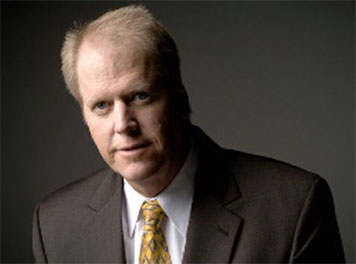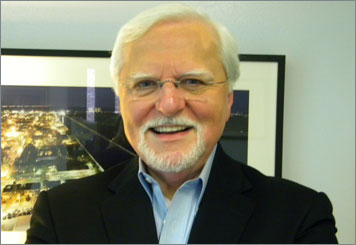ONE of Kerala’s cultural gurus, Sukumar Azhikode, an award-winning writer and scholar who was also considered as the most influential Gandhian intellectual in that state, passed away on Jan 24.
Professor Azhikode, 85, who had been fighting cancer for some time, was involved in an ugly spat with Mohanlal, one of the finest actors in Indian cinema, for over a year until sometime before his death. When veteran Malayalam actor Thilakan claimed that some big names in the film industry were conspiring to deny him opportunities, Azhikode jumped into the fray and claimed that he had got Mohanlal to sit across the table with Thilakan and resolve the issue.
However, Mohanlal denied that such a thing happened and said that Azhikode must be having some ‘hallucination’. A chagrined Azhikode hit out saying Mohanlal should consider quitting from films due to his age (the actor is 52) and that if some of his heroines saw him without makeup ‘they will faint.’ The social critic also dared the actor to go around without makeup. Mohanlal, who was piqued with Azhikode’s uncharitable statements, retorted saying whether he should stop acting was not a matter for Azhikode to decide and that he considered the latter’s statements as some ‘aged uncle’s joke.’
The standoff between the two took a serious turn when Azhikode filed a defamation suit against the actor. Although Mohanlal later secured a bail in the case, the issue remained unresolved until Azhikode was admitted to the hospital and diagnosed of cancer. When Lal learned of this, he expressed his regret and anguish over making uncharitable comments against the scholar whom he respected.
Two days before Azhikode passed away at Amala Hospital in Thrissur, Kerala, Mohanlal visited the hospital and stood silently at the ailing writer’s bed. According to Malayala Manorama, the actor touched the writer’s feet and caressed his hands gently. Azhikode himself was unconscious and oblivious to Lal’s visit.
The New Indian Express reported on the meeting thus:
“Both had exchanged pleasantries over phone as well. But the actor had not come to visit Azhikode till now. Now, it is too late, or so it seemed, reading the face of the accomplished actor who had portrayed such emotionally charged scenes on celluloid, playing down the emotions.
He stood by the bedside, amidst the crowd of cameras and eyes, peering at the closed eyes of the man who wrote, ‘Tatvamasi’ – thou art that. After about 10 minutes, Lal walked back. He did not speak much to anyone, except a line that, “I spoke to him. He would have heard me, felt my presence.”
Such is life!
William Shakespeare wrote these immortal lines in Macbeth:
Tomorrow, and tomorrow, and tomorrow
Creeps in this petty pace from day to day
To the last syllable of recorded time;
And all our yesterdays have lighted fools
The way to dusty death. Out, out, brief candle!
Life’s but a walking shadow, a poor player
That struts and frets his hour upon the stage
And then is heard no more. It is a tale
Told by an idiot, full of sound and fury,
Signifying nothing.
At death, our hurts mean nothing. Only what was said and done and what was not said and undone remain to question and torment the living. I wonder what Mohanlal felt when he realized he would never see Sukumar Azhikode alive again? Did he also like Macbeth feel life was ‘a tale told by an idiot, full of sound and fury, signifying nothing’?
What a needless controversy! What a wasted opportunity for forgiveness and reconciliation!
In contrast, Joseph’s life offers an excellent model to face life’s disappointments, betrayals and hurts. We read about his life in Genesis 37 to 50 in the Bible. He was born as the 11th son of Jacob and the elder of two sons of Rachel (Gen 30:24). The meaning of the name Joseph is ‘God adds.’ A pen portrait of Joseph’s life would go like this: He was loved by his father, rejected by his brothers, turned to gentiles, unjustly tried, suffered and humiliated. Terrible story, so far! But then, Joseph also had good times. He was exalted with honor and glory, he married a gentle bride, had a happy family reunion, was accepted by his kin and delivered his people from death due to famine. Joseph’s life is a story of a great beginning, terrible betrayal, loneliness and suffering, faith in God and a remarkable turnaround.
There are several lessons that we learn from his life but the one message that we are talking about here is how Joseph rose above the ordinary human trait to hold grudges and plot revenge to show one of the finest facets of God’s love – forgiveness and reconciliation.
He was sold by his brothers who were jealous of their father Jacob’s special affection for him. Joseph was only 17 when he was sold to Ishmaelite nomads who later transferred him as a slave to Egyptians. Imagine losing your teenage child. Or better still, put yourself in Joseph’s shoes and consider what he may have felt within him. Only some time ago, he had a mysterious dream that suggested his supremacy over his brothers and their submission to him, and now he was traveling with a bunch of Arabs. And a bleak and uncertain future stared at him. Imagine being torn away from your family and traveling many miles away from your home with no clue where you are headed to and what your captors might do to you. From a human perspective, Joseph had every right to feel bad, bitter, angry and have murderous thoughts towards his brothers. But what did Joseph do? He did the opposite of what his flesh suggested. While his natural man suggested that he feel bad and bitter and allow himself a good measure of self-pity, his inner man, renewed by the love of God, made him get over his situation and come out as a victor over his captors, betrayers and situations.
Reading Joseph’s reunion with his brothers always leaves a lump in my throat. The passages are emotionally charged. You almost feel like standing next to Joseph and feeling his pain and agony within you.
Look at what he told his brothers after he revealed his true identity to them.
“And he said, “I am your brother, Joseph, whom you sold into Egypt. And now do not be distressed or angry with yourselves because you sold me here, for God sent me before you to preserve life” (Genesis 45:4-5).
Even when he had the power to recompense his brothers for the evil they did to him, he had the grace to see their frailty, accept God’s hand in whatever had happened in his life and had enough love in him to assuage their feelings of distress. That’s the power of the Holy Spirit at work in a man who has fully given himself up to God.
Years later, after he had resettled his extended family of brothers in the land of Egypt, Jacob passed away. To the brothers who thought Joseph’s kindness toward them had to do with Jacob, the father figure, being alive, a great surprise awaited them.
When Joseph’s brothers saw that their father was dead, they said: ‘What if Joseph holds a grudge against us and pays us back for all the wrongs we did to him?’ (Genesis 50:15).
So, they sent word to him saying Jacob, their father, had pleaded mercy for them on their behalf.
Look at Joseph’s response when he got this message:
‘…When their message came to him, Joseph wept’ (Genesis 50:17). Men, who walk with God, are not ashamed to weep.
Now, look at what he told them:
‘But Joseph said to them, ‘Don’t be afraid. Am I in the place of God? You intended to harm me, but God intended it for good to accomplish what is now being done, the saving of many lives’ (verses 19 and 20).
The operative principle at work here is quoted in Romans 8:28: ‘And we know that God causes everything to work together for the good of those who love God and are called according to His purpose for them.’
If you have truly yielded your life to God you are counted as the one who is called according to His purpose. The promise found in Romans 8:28 is for you!
All things mean all things. There are no two ways about what God says. He is never ambiguous. He has promised, and we are called according to His purpose. Three verses down the line from Romans 8:28, God gives us a question to ponder about: ‘If God is for us, who can be against us?’
I am pondering that verse now. May God help you to think about it, too! Amen.
Robin Sam is the editor of The Christian Messenger. You can reach him at editor [at] christianmessenger [dot] in






















